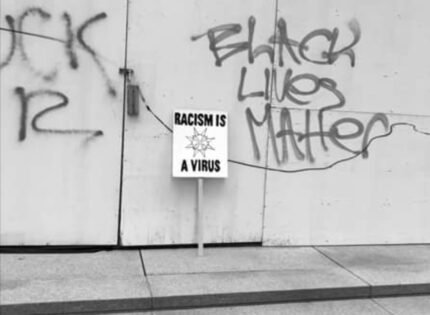
Recent occurrences in the Black community, wherein I was called to play a significant role, have concomitantly brought me face to face with the frequent and indiscriminate use of the term accountability.
From my humble perspective, it has become almost a meaningless buzzword, especially for those in leadership positions. There’s certainly a disconnect between the rhetoric and reality of accountability among Blacks. However, let me try to allay your fears and set the tone straight, by defining exactly what is meant by the term accountability.
The definition of accountability includes the obligation to account for one’s actions, and accepting responsibility for one’s actions or inactions.
I am using the word very broadly to apply to virtually every stratum—from formal organizational leadership to the obligation of individuals to be accountable for their own behavior.
It is clear that we use or mention the word accountable when describing the performance of elected or appointed public officials. On the other hand it is blatantly apparent that our community’s failure to both recognize and acknowledge the need for broad overall accountability absolves everyone, leadership in particular, from any sustainable accountability.
Such patented lack of accountability, by so many of our so-called leaders, aggravates the very conditions that continue to hamper Black people’s forward movement. For us, the most egregious effect of a lack of accountability is the tendency to perpetuate a status quo that by any measure is not in our best interest.
Widespread lack of accountability continues with unabated impunity in our community where outrage is typically a moment, not the start of sustained, strategic protest or action. Will there really be sustainable accountability around Black Lives Matter? Is it a spark that ignites sustainable protest, or simply another copycat opportunity?
Accountability begins by honoring and meeting one’s individual responsibility for agreed on work or performance, then conforming to moral and ethical values which currently are anything but popular topics of public discourse these days.
A mundane example and one that that readily springs to mind, is something seemingly as unimportant as failing to return phone calls suggests not doing so is not a top priority. Of course, exigencies may prevent an individual from returning the call, but a pattern of not doing so is not only disrespectful, but a failure to be accountable.
There are occasions, when such behavior can have irreparable consequences for a given group. Yet another example and one with which most readers can relate, is when an individual accepts via membership the group’s purpose and objectives, but regularly fails to attend meetings or responds to meeting notices.
This may or may not indicate a lack of interest or concern, but such behavior does indicate that attending the group’s meetings and/or responding to the group’s request to do so, is obviously not an immediate priority and is inconsistent with their professed “buy-in” to the group’s mission.
Yes, the examples I have proffered may appear somewhat trivial; nevertheless I will argue and strongly and openly state that they constitute snapshots of what takes place all the time in the Black community, and sometimes with serious negative consequences.
I am calling on readers to garner and furnish evidence to the contrary, thereby proving me wrong.
I am certain that persons who have worked extensively with Blacks and the Black community on important issues such as police brutality, racial profiling/discrimination, educational inequity and politics, etc. resonate with these examples and have little or no trouble whatsoever giving their own accounts about the implications and contradictions of individuals’ and groups’ stated priorities versus their actual behavior.
Personally, I feel that this discussion is of extreme importance because problems and adverse conditions affecting Black folks should be described honestly; reality is both plus and minus and soft-peddling distorts the truth. Overemphasizing or ignoring one or the other has serious negative implications.
This is especially true in the social and political arenas where oftentimes seemingly trivial matters derail a group’s efforts and/or particular project. These days, Black leaders tend to overemphasize the positive (or the status quo) while downplaying continuing barriers to Blacks’ progress, which often correlates with their lack of accountability.
Failure to deal with both plus and minus makes it virtually impossible to effectively challenge race-based inequities or hold the “system” accountable. (It also obscures Black people’s responsibility to hold their own leadership accountable.)
Now for a drum roll, change of tune and stepping to a different beat, but accountability is a top-down, bottom-up proposition. It starts with parents exercising greater responsibility, respect and control of their children and then holding Black leadership at every level accountable.
Firstly, this necessitates rigorously re-examining the prevailing individualistic and materialistic norms, then (or simultaneously) developing drastically different, group-oriented values. This most likely will occur and become increasingly evident as Blacks become sufficiently dissatisfied to behave differently. New mindsets also require courageous risk taking, which is indispensable for achieving sustainable progress.
In addition, accountability is about modeling ethical and moral behavior, as opposed to mouthing empty platitudes that perpetuate a status quo inimical to our own best interests.
We must reclaim, internalize and actively represent the community wherein we live and give.
Aleuta—The struggle
continues. . .















